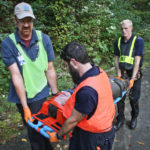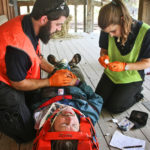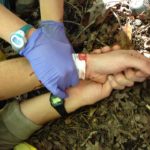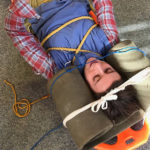Earn Your EMT in Four Weeks
SOLO Southeast’s intensive EMT program is designed to offer students a streamlined pathway into the world of Emergency Medical Services (EMS). The course is fast-paced and taught by our highly experienced instructors. Students learn anatomy, patient assessment, life-saving medical interventions, and pre-hospital patient care. These topics are presented in lectures, hands-on labs, and textbook readings. Assessment is conducted through physical skill sign-offs and written exams and quizzes.
This rapid progression course provides career opportunities for students. EMT’s can join an ambulance service on a full- or part-time basis. Some fire departments require EMT certification for selection and many respond to medical calls. Pre-med and other pre-health students can improve their admission chances by gaining patient contact hours working in an emergency department or ambulance service. SOLO students will complete 192 hours of classroom work and 48 hours of clinical observations with local EMS agencies and emergency departments.
Emergency Medical Technician (EMT):240 Hours/26 Days
This 26-Day course consists of the Department of Transportation EMT curriculum condensed into an intensive, three-week program. Students learn how to perform patient assessment, respond to airway, breathing, and circulation issues, control incident sites, and perform emergency medical techniques. They also learn how to perform proper single-rescuer care with limited patient access and practice safe transport methods. The course includes hands-on, practical skills scenarios, classroom lectures, and clinical observations at local EMS services and emergency departments. American Safety and Health Institute Basic Life Support (BLS) CPR is included. Students will also complete an NAEMT Emergency Vehicle Operator Safety (EVOS) course. Following successful completion, students qualify to take the North Carolina State EMT Exams and/or National Registry EMT Exam. Looking for Wilderness upgrade?
Lodging: Available through NOC
Meals: Available through NOC’s Restaurants
Recommended For: Those seeking a career in Emergency Medical Services, state or federal agencies, the military or law enforcement, future healthcare professionals seeking patient contact opportunities, and expedition or wilderness guides.
Upon Successful Completion:
- Certificate of completion for 240-hour state and nationally-certified Emergency Medical Technician course (qualification for NREMT/NCEMS written test)
- NREMT psychomotor testing
- 2-year Basic Life Support certification
- NAEMT EVOS driver certification
Prerequisites: Due to the intense nature of the course, students must meet the following requirements:
**Update: A full COVID-19 vaccination is required for all students in EMT or WEMT Courses.
- Minimum age of 18 years
- High School Diploma or GED
- No felony convictions
- Childhood vaccinations, Hep B series, and a negative TB test within 6 months of the course start date
- Must be able to meet NHTSA Functional Job Analysis requirements for EMS
Many factors may exclude individuals from taking this course. For the safety of students, instructors, and patients, all required forms must be completed no later than two weeks before the course start date. Information about these forms is available in the EMT/WEMT Packet and by checking the list using the EMT Mandatory Documentation Checklist. Please contact SOLO Southeast directly with any questions by calling 828-475-7215.
FAQ’s for EMT & WEMT Program, click here.
*Registration for the EMT/WEMT closes three weeks prior to the start of the class. A $400 non-refundable deposit is due at the time of booking.
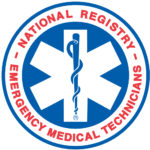
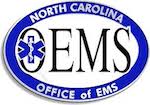
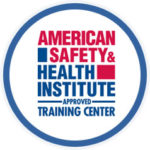
Courses Dates
| Course | Dates | Location | Tuition | |
|---|---|---|---|---|
| Emergency Medical Technician (Basic) | Sep 11th - Oct 6th, 2025 | Bryson City, NC | $2,995 | |
| Emergency Medical Technician (Basic) | Feb 6th - Mar 3rd, 2026 | Bryson City, NC | $2,995 | |
| Emergency Medical Technician (Basic) | Jun 11th - Jul 6th, 2026 | Bryson City, NC | $2,995 | |
| Emergency Medical Technician (Basic) | Sep 10th - Oct 5th, 2026 | Bryson City, NC | $2,995 |
Course Outline
Course Topics
Introduction to Emergency Care & Training
Medical Legal Issues
Patient Assessment System
Documentation
Airway Obstruction & Respiratory Arrest
O2 Therapy
Bleeding & Shock
CPR
CPR Considerations for the Remote Environment
Chest Trauma
Common Wilderness Medical Problems
Central Nervous System
Lifting and Moving
C-Collars
Back Board and KED Board
Litter Packaging
Backcountry Spinal Assessment
Head Injuries
Soft Tissue Injuries
Wilderness Wound Management
Athletic Injuries
Fracture Management
Traction Splint
Dislocations
Cold Injuries
Hydration Illnesses
Cardiac, Respiratory and Neurological Emergencies
Diabetes
Abdominal Emergencies
Poisoning
Triage
Multiple Casualty Incidents
Incident Command System
Leadership, Teamwork & Communication
Medical Decision-making
Disturbances of Behavior
Alcohol & Drug Emergencies
Course Notes:
Training as an EMT will help prepare you for a future career in Emergency Medical Services, the military or law enforcement, and is recommended for expedition and wilderness guides.
Course Curriculum:
EMT Curriculum
Module 1: Preparatory
- Introduction to EMS Systems
- The Well Being of the EMT
- Medical, Legal, and Ethical Issues
- The Human Body
- Baseline Vital Signs and SAMPLE History
- Lifting and Moving Patients
Module 2: Airway
- Airway Management
- Practical Skills Lab: Airway
- CPR for the Professional Rescuer
Module 3: Patient Assessment
- Scene Size-Up
- The Initial Assessment
- Focused History and Physical Exam - Trauma Patients
- Focused History and Physical Exam - Medical Patients
- Detailed Physical Exam
- On-Going Assessment
- Communications
- Documentation
- Practical Skills Lab: Patient Assessment
Module 4: Medical/Behavioral Emergencies & Obstetrics/Gynecology
- General Pharmacology
- Respiratory Emergencies
- Cardiovascular Emergencies
- Diabetes/Altered Mental Status
- Allergies
- Poisoning/Overdose
- Environmental Emergencies
- Obstetrics/Gynecology
- Practical Skills Lab: Medica/Behavioral and OBGYN
Module 5: Trauma
- Bleeding & Shock
- Soft Tissue Injujries
- Musculoskeletal Care
- Injuries to the Head and Spine
- Practical Skills Lab: Trauma
Module 6: Infants & Children
- Infants & Children
- Practical Skills Lab: Infants and Children
Module 7: Operations
- Advanced Airway
- Practical Skills Lab: Advanced Airway
Wilderness Module
Wilderness Specific Protocals
- Hx of Wilderness Medicine
- Wilderness vs. Urban Care
- Wilderness Legal Issues
- Anatomy of a Crisis
- Remote CPR Protocols
- Spine Management (Clearing the Spine)
Patient Assessment
- PAS Overview
- Primary Survey (ABCDE)
- Moving Pts. (Log Rolls & BEAM)
- Secondary Survey (Vitals, PE, AMPLE HX)
- Documentation (SOAP)
Managing Injuries in the Backcountry
- Head Injury Management - Highlights of TX and monitoring
- Cardiothoracic Trauma Management - TX and monitoring
- Musculoskeletal Injury Management
- Sprains & Strains Assessment & TX
- Complicated Fractures Assessment and TX
- Improvised Splinting
- Improvised Traction Splits
- Dislocation Reduction
Managing Soft Tissue Injuries in the Backcountry
- Bleeding and Infection Management
- Long Term Wound Care
- Special Considerations
- Impaled Objects
- Blisters
- Eye Injuries
- Teeth
- Wilderness Burn Management
Environmental Emergencies
- Cold Illness (Hypothermia, Frostbite, Immersion Foot)
- Heat Illness (Dehydration, Heat Exhaustion, Heat Cramps, Heat Stroke)
- Exertional Hyponatremia
- Drowning and Near Drowning
- Altitude
- Lightning
- Anaphylaxis - Highlights of TX and Monitoring
- North American Bites and Stings
Backcountry Rescues
- Packaging Practice
- Incident Command System
- Long Term Patient Care Considerations
- Improvised Litters
- Litter Handling
Backcountry Survival Skills
- Water Disinfection
- Emergency Bivouac
- Shelter-Building
Group Management in the Backcountry
- International Travel and Safety
- Common Expedition Problems
- Expedition Medications and Medical Kits
- Death in the Backcountry
Clinical Rotations & Assessments
Packing List
You should plan to have clothing appropriate to the season in which you will be taking the class, as you will spend a significant amount of time outside. The following list is to SUPPLEMENT the clothing you will be wearing. If you have trouble locating some of these items please call us as we have a limited amount for a loan.
Recommended Gear List
EMT Intensive course:
• Textbook (provided by SOLO SE)
• Approved clothing for clinicals (see above)
• Waterproof Jacket
• Wristwatch with seconds displayed (cell phone is not sufficient)
• Pens and any other office supplies necessary for studying (notebooks, highlighters, sticky- notes, etc.)
• Clothing appropriate to the weather for hands-on scenarios
Wilderness EMT (as above and…):
• Backpack for carrying gear (medium to large)
• Rain gear (tops and bottoms)
• Layers of clothing (for splinting exercises and to keep yourself warm during scenarios)
• Warm hat or sun hat (depending on season)
• Water bottles (at least 1 quart/liter)
• Head lamp or flashlight
• Footwear appropriate to the terrain (closed toes, no flip flops)
• Insect repellent (seasonal)
• Sunscreen (seasonal)
• Clothing that could be worn on a rafting trip (seasonal)
Additional items (not required):
• Old sleeping bag or blanket
• Footwear you don't mind getting wet
• Knife
• Plastic tarp or groundsheet (min 6’x 6’)
• Sleeping pad (ensolite or thermarest)
• Personal first aid kit (Band-Aids etc.)
• Some of our scenarios may be water based; if you have your own wetsuit, PFD, water shoes, splash gear etc. please feel free to bring them, although we will supply all necessary gear free of charge


